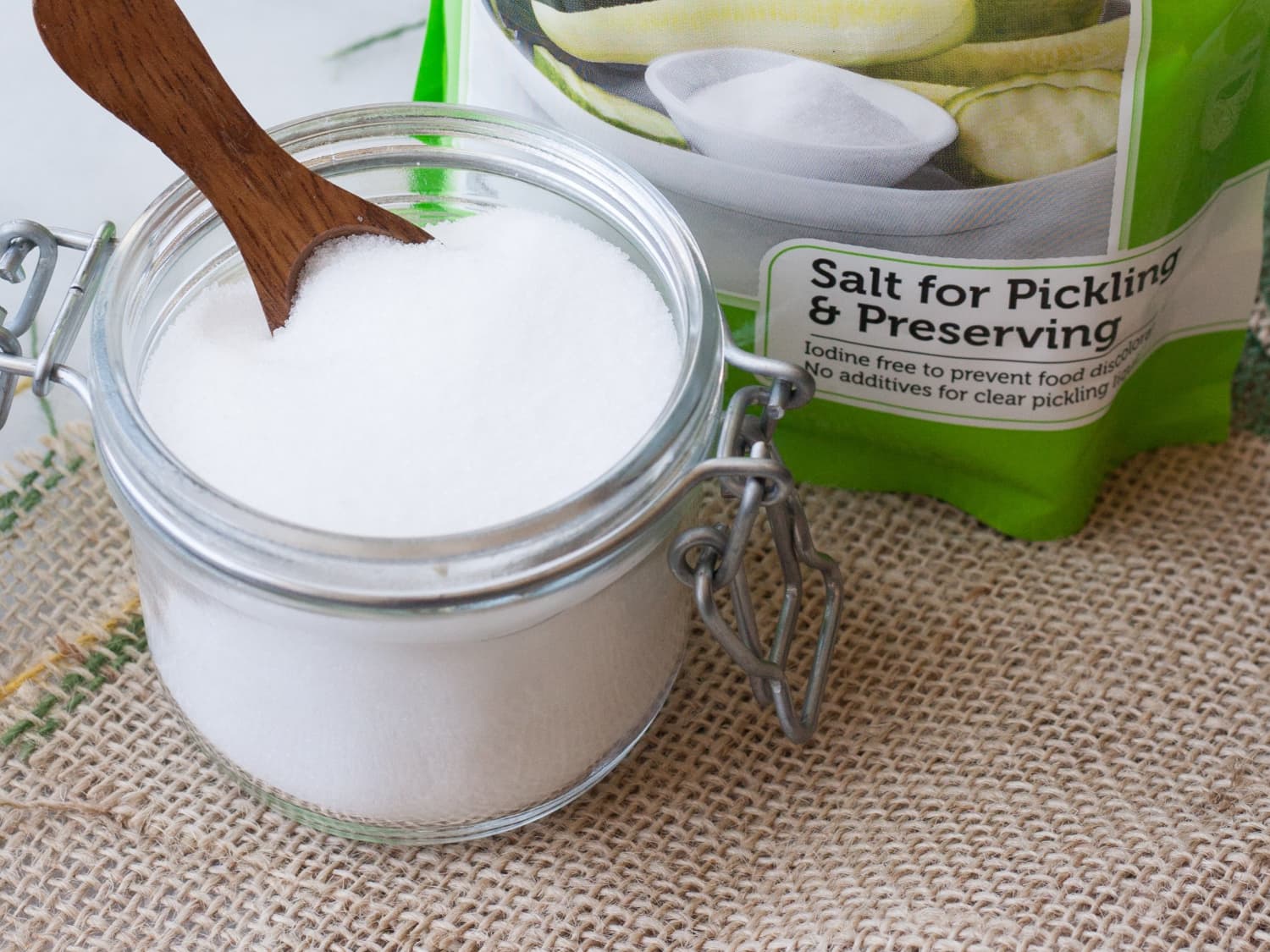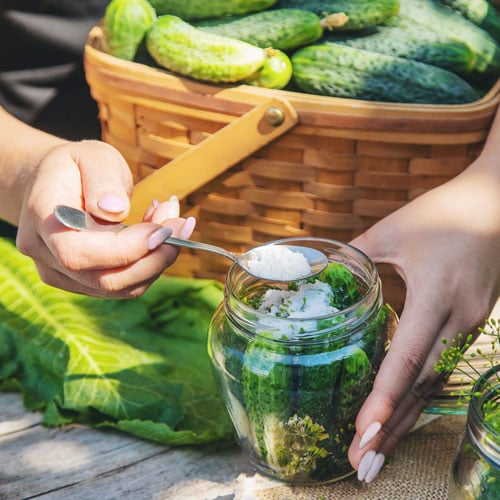
The grains are not exactly the same size but kosher salt generally weighs about the same as pickling salt. The first is its smaller crystals that dissolve more quickly on the tongue.

When salt is mixed with hot water it helps remove the fattening and aromatic qualities of sugar from preserved foods.
Pickling with sea salt. Flavor concentration is another important factor when comparing pickling salt to sea salt. Pickling salt tastes saltier than larger grained salts. This occurs for two reasons.
The first is its smaller crystals that dissolve more quickly on the tongue. The second reason that pickling salt will give you more saltiness is that there is more salt in a teaspoon of it than there is in a teaspoon of sea salt. Pickling salt sometimes called canning salt or preserving salt is pure granulated salt sodium chloride.
Pickling salt does not contain anti caking ingredients which can turn pickling liquid cloudy or additives like iodine which can make pickles dark. In addition pickling salt has fine granules that make it easy to dissolve in a brine. Pickling is a technique which preserves and protects food and its easy to do it with sea salt.
The most common types of pickling are white wine vinegar and saltwater brine but you can use other combinations. When salt is mixed with hot water it helps remove the fattening and aromatic qualities of sugar from preserved foods. Pickling salt is a very fine grained and quite pure salt.
It doesn t contain iodine or anti caking agents like table salt does. The fine grains let it dissolve quickly making it good for making brines for pickling. Sea salt is salt produced by evaporating sea water.
Pickling salt is a salt that is used mainly for canning and manufacturing pickles. It is sodium chloride as is table salt but unlike most brands of table salt it does not contain iodine or any anti caking products added. A widely circulated legend suggested that iodisation caused the brine of pickles to change color.
Substitute sea salt for canning salt in a ratio of one to one. Dissolve the salt and vinegar if called for in water according to the recipe. Pickle or store the vegetables in the brine as they are called for in the recipe.
Can the jars with the brine and vegetables and pickle or ferment them according to the recipe. Kosher is the only salt i will sometimes use as a substitute if i am out of pickling salt. The grains are not exactly the same size but kosher salt generally weighs about the same as pickling salt.
Other salts are safe but not recommended. Sea salt and flake salt. These two salts are the most commonly asked about in canning.
Although both of these salts are perfectly safe to use from a sodium standpoint they cannot be used interchangeably with pickling salt because they measure out very. Pickling was used as a way to preserve food for out of season use and for long journeys especially by sea. Salt pork and salt beef were common staples for sailors before the days of steam engines.
Although the process was invented to preserve foods pickles are also made and eaten because people enjoy the resulting flavors. Salt is an essential ingredient in both cooking and baking added to enhance tastes suppress bitterness and preserve foods. Most recipes call for table salt while others recommend sea salt but is there actually a difference between the two.
Yes you read that right. All salt is sodium chloride nacl and it all comes from seawater even table salt. Sea salt has a slightly different taste but should work just the same remember though that a tablespoon of canning salt and a tablespoon of sea salt will have different amounts of salt because less sea salt can fit in that spoon than canning salt could because of canning salt has finer grain.
So you have to take that into consideration.